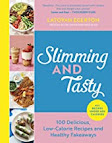Come new year most people want to do two things. Firstly, they want to shed the weight they’ve put on over Christmas. Secondly, they want to get back on the financial straight and narrow after Christmas spending. What you eat can help a lot with both goals. With that in mind, here are five New Year’s diet resolutions.
Pull back on the alcohol
Alcohol is a treat, often an expensive one. What’s more, you’ve probably had a lot more than usual over the festive season. Cutting it out completely for a while (dry January) wouldn’t do any harm. If, however, that’s a step too far for you, then look at “skinny booze” options.
Stick to home-made caffeine
The problem with coffee-shop drinks isn’t necessarily the caffeine itself. It’s everything else which can go into them without you really noticing. For example, coffee syrups are basically sugar and whipped cream is straightforward fat. If a barista makes your brew you can overlook this. If, however, you make it yourself, you have to take ownership of what goes in it.
It also has to be said that coffee-shop drinks are generally much more expensive than homemade ones. Part of the reason for this is the materials, equipment and the barista’s training. A lot, however, is location, convenience and marketing. If you want to support small businesses, then try buying dry coffee from them and making it at home.
Cut back on red meat
Red meat isn’t necessarily bad for you. A lot depends on how you cook it. It is, however, very easy to overdo red meat. What’s more, red meat tends to be very expensive. If you want a healthier (and probably more affordable) way to get that rich, meaty flavour, try smoked salmon. This is particularly good in winter as it’s full of selenium which helps the immune system.
Take breakfast seriously
Breakfast really does set you up for the day so you should be taking it seriously. The best breakfasts have a mix of fibre (for bulk), complex carbohydrates (for slow-release energy) and protein (for quick-release energy and to satisfy your appetite). You can get all of these from breakfast cereal plus milk, but only if you choose a healthy cereal.
If you’re not a breakfast cereal person there are still lots of ways you can get this balance. For example, toast can provide both fibre and carbs, you just need to add the protein. This could be egg or peanut butter. Whatever you eat, it’s good to add some vitamins and minerals in the form of fruit and/or vegetables.
Taking breakfast seriously not only gets you off to a good start, but it also reduces the chances of you being tempted into unhealthy snacking. This helps both your waistline and your wallet.
Invest in a slow cooker
If you have a slow cooker already, then invest your time in learning how to get the most out of it. There’s loads of information online. Slow cookers are a great way to cook budget cuts of meat. These tend to be relatively tough and hence benefit from “low and slow” cooking to soften them and bring out their flavour. If you don’t eat meat, slow cookers are also great for winter roots.
%20(1).png)
.png)










0 Comments